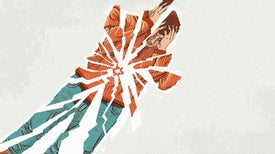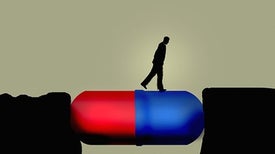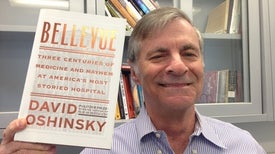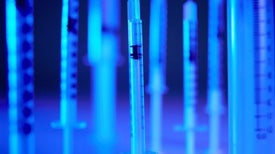
Brain Imaging Identifies Different Types of Depression
Biological markers could enable tailored therapies that target individual differences in symptoms

Biological markers could enable tailored therapies that target individual differences in symptoms

Flagging children early offers the possibility of more effective treatment

A long-standing code of ethics prohibits diagnosing public figures from afar

Fascinating study suggests treating “psychache”

A look inside the March/April issue of Scientific American Mind

Students may wait weeks for a basic consultation; sometimes even longer to see a psychiatrist

Researchers see some promise in ibogaine, a well-known hallucinogen, and related compounds

The deinstitutionalization of people with mental illness restored their rights, but caused plenty of problems as well

Journalist Emily Esfahani Smith offers a guide for building a better approach to living


Scientific American executive editor Fred Guterl talks with Pres. Obama’s science advisor, John Holdren, about climate science, space travel, the issue of reproducibility in science, the brain initiative and more...

Pulitzer Prize–winning N.Y.U. historian David Oshinsky, director of the Division of Medical Humanities at the N.Y.U. Langone Medical Center, talks about his latest book, Bellevue: Three Centuries of Medicine and Mayhem at America’s Most Storied Hospital ...

How healing occurs and what you can do to offer support to someone with PTSD

Researchers are exploring therapy that reduces nighttime terrors

Critics have portrayed ECT as a form of medical abuse. Yet many psychiatrists, and more importantly, patients, consider it to be safe and effective. Few medical treatments have such disparate images...

Overwhelming medical evidence shows that negative side effects are rare and minor

Despite having the same name, the diseases that killed Apple co-founder Steve Jobs and 2011 Nobel laureate Ralph Steinman are different kinds of cancer. Researchers are looking for new ways to diagnose and treat both...

The science on that question is mixed, but for me it feels more like a form of meditation

This week, Savvy Psychologist Dr. Ellen Hendriksen examines how ADHD often manifests in girls and women

Like “self love” or “inner child,” the term “codependent” smacks of pop psychology psychobabble. To make matters worse, it’s become shorthand for a whole host of unhealthy behaviors...
Support science journalism.

Thanks for reading Scientific American. Knowledge awaits.
Already a subscriber? Sign in.
Thanks for reading Scientific American. Create your free account or Sign in to continue.
Create Account